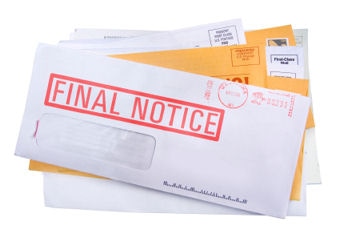Chapter 7 Bankruptcy in Tacoma Washington
The entire Chapter 7 process usually lasts just over three months. A Chapter 7 debtor does not have to make any payments to any creditors, but there is a risk property can be taken to pay part of your debt. However, losing property in a Chapter 7 is fairly rare because the kind of property most people have is exempt from the liquidation process.
If you make over the median, or average, income for your household size, you have to go through a means test. If your expenses are not high enough to show you can not pay at least part of your debt, you may have to file a Chapter 13 repayment plan.
Before filing any kind of bankruptcy, you have to take a credit counseling class. This class just takes two hours, is cheap and can be done online. The case starts by filing a petition with several documents attached detailing your income, your budget, your property and your debts. You also have to disclose certain financial details that have occurred in the past two years, such as transfers of property to relatives and business partners, your past two years income and your past addresses.
Chapter 7 and DebtThe second a Chapter 7 is filed all debt collection has to stop. A car company or mortgage company can ask the court to continue a repossession or foreclosure if you are behind on the payments in a Chapter 7. This kind of bankruptcy only provides temporary protection from these “secured” creditors but if you are current with your payments, you can keep the property.
 Secured creditors will want you to sign a reaffirmation agreement. For car companies, they can repossess the car if you don’t sign a reaffirmation agreement, even if you are current. However, many car finance companies do not act on this. It is important to consider the reaffirmation agreement carefully because by signing it, you take the debt outside the bankruptcy and you could be liable for it if you default later on. The reaffirmation agreement shifts the risk of default from the secured creditor to you.
Secured creditors will want you to sign a reaffirmation agreement. For car companies, they can repossess the car if you don’t sign a reaffirmation agreement, even if you are current. However, many car finance companies do not act on this. It is important to consider the reaffirmation agreement carefully because by signing it, you take the debt outside the bankruptcy and you could be liable for it if you default later on. The reaffirmation agreement shifts the risk of default from the secured creditor to you.
There is only one hearing you are likely to have to attend in a Chapter 7. This is called a “meeting of creditors,” though creditors rarely appear at the hearing. It his held one month after you file your case. You and your attorney will meet with a trustee, who will swear you in and ask you questions under oath about the documents you filed. You have to submit pay stubs, bank statements, and your latest tax return to the trustee at least a week before the hearing. In most cases, the trustee does not investigate any further. In some cases the trustee will want more information about transfers of property or property that you own. You have to cooperate with the investigation. In some cases the trustee takes property and sells it to pay creditors.
About two months after the meeting of creditors, you receive a discharge. The discharge wipes out all debt unless there is an exception to the discharge. The most common debt that is not discharged in a bankruptcy include some back taxes, student loans, fines, and back domestic support obligations such a child support or spousal maintenance. Before getting the discharge, you have to take a second two hour online class called a financial responsibility course.
As long as the trustee is not investigating or liquidating assets, the case closes. If the trustee is still looking into assets, you still get the discharge but you may have to continue cooperating with the trustee. Again, this occurs in the minority of cases.
If you have any questions about a Chapter 7 bankruptcy, contact your trusted bankruptcy lawyers in Tacoma, Washington.
 Washington State Attorneys Home
Washington State Attorneys Home















































